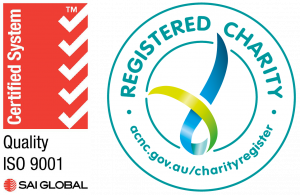Making every change count – from little things big things grow
Picture:
Shutterstock.
Quality improvement (QI) is a systematic approach that uses specific techniques to implement change and achieve stable, predictable results. Within complex general practice environments, change is best achieved through a series of small, measured, tested and progressive steps.
Add your title here
This is the text area for this paragraph. To change it, simply click and start typing. Once you've added your content, you can customize its design by using different colors, fonts, font sizes and bullets. Just highlight the words you want to design and choose from the various options in the text editing bar.
This is the text area for this paragraph. To change it, simply click and start typing. After adding your content, you can customize it.
Improvements achieved in general practice can include improved patient outcomes and experiences, uptake of evidence-informed practices, better working environments for staff, improved equity of services, increased systems performance and more efficient procedures.
However, for a practice to make improvements it is critical that these changes are local – tailored precisely to fit the needs and demands of the facility in which they take place.
NWMPHN knows from experience that when it comes to improvements one size doesn’t fit all. Examining what happened in one setting will yield lessons, but not solutions. To work, changes must be grown organically on site, by the staff and patients most affected.
So, to build the capability of general practices to undertake QI, NWMPHN delivers, facilitates and supports a range of initiatives. These include QI coaching, data driven QI using clinical audit tools such as Pen CS, self-directed QI activities, health reform, education and training, and facilitated QI projects.
This “think global, act local” approach, means NWMPHN can balance single-setting need with its vision for sector and system level change.
Small, measured, tested and progressive steps …
To do this the organisation consults and collaborates with partners, peak bodies and stakeholders to design QI initiatives. While each differs, all QI initiatives share certain qualities.
- They pursue an end-point that is widely applicable.
- Participants are fully backed by the organisation, including by a program officer.
- Change arises through cycles comprising cycles of planning, doing, reflecting and acting.
- Outcomes are measured, evaluated and then adopted, adapted or ceased.
QI projects by practices in the NWMPHN region in 2022–23 have tackled matters as diverse as Aboriginal health assessments, heart failure management, childhood asthma, early detection and prevention of diabetes and cardiovascular disease, and eye health, to name a few.
Feedback on our general practice support is collected through a net promoter score. NWMPHN’s net promoter score for 2022–23 was 67 per cent – rated as ‘great’.
Seeking solutions that make life better …
The organisation also coordinates continuing professional development and other education for primary care, some in partnership with local hospital networks, peak bodies, public health units and other PHNs. In 2023–24, there were 86 of these education sessions, attended by 2228 participants.
Quality improvement activities and continuing professional development are about seeking solutions within our region to achieve our vision for primary care. By definition, not everything works for every practice every time. Reflection and adaptation are important.
Finding the best pathways forward means recognising what’s working, and adjusting when things don’t go to plan.
NWMPHN’s commitment to innovative quality improvement means that every change is valuable – no matter how small.
NWMPHN commissioned videographer Tessa van der Riet to make this video explaining the Strengthening Care for Children project, which concluded in 2023.
Our STORIES
Keep up to date with the latest news and publications, funding opportunities, careers and upcoming events at NWMPHN.

